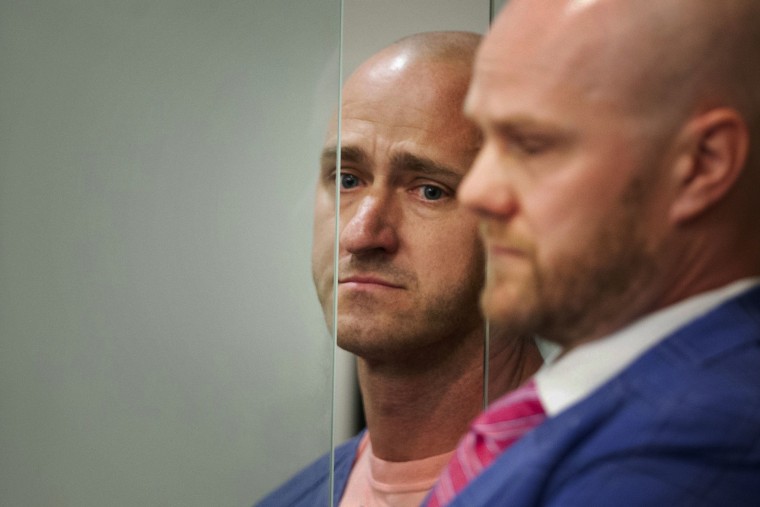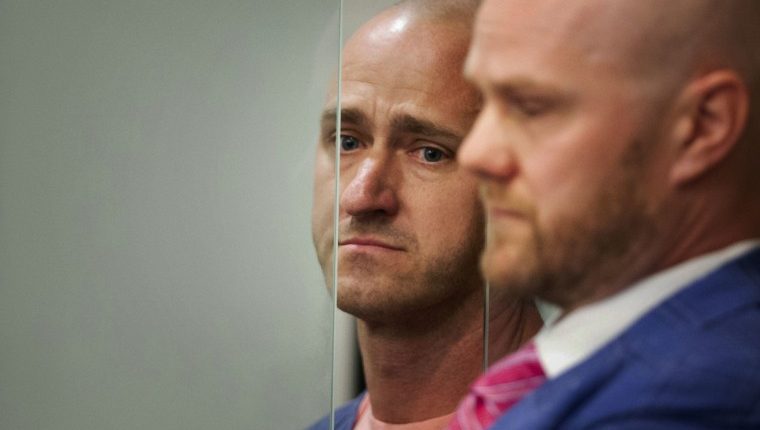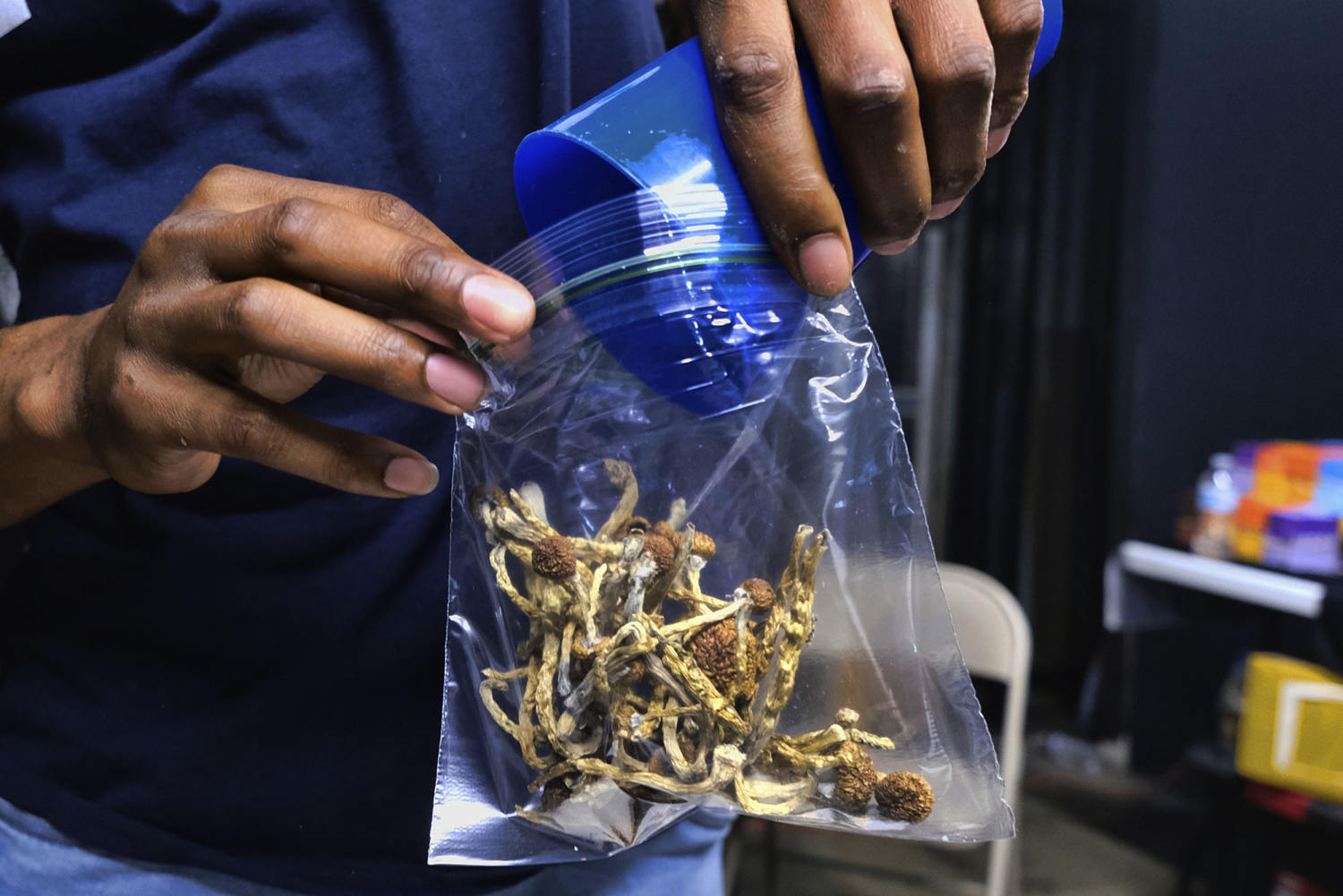After an off-duty Alaska Airlines pilot accused of trying to bring down a planemidflight said he had consumed “magic mushrooms” before boarding, psychedelic researchers say the event should be a cautionary tale, especially for people who think they might be able to overcome a tenacious mental illness by taking a psychedelic drug on their own.
Over the last five years, research on psychedelic drugs as part of a therapy for mental conditions such as post-traumatic stress disorder, depression, anxiety and addiction has exploded. Early study results have been so promising that the Food and Drug Administration issued draft guidance in June for designing clinical trials for psychedelic drugs, including MDMA and psilocybin, for mood, anxiety and substance use disorders.
It’s unclear whether the off-duty pilot Joseph Emerson, 44, who told authorities after his failed attempt to shut off the plane’s engines that he had struggled with depression, was trying to self-medicate by taking psilocybin, the active component in magic mushrooms.

Yet as states consider legalizing or decriminalizing psilocybin —clinics in Oregon began offering psilocybin therapy this summer and Colorado voters approved legalization in 2022 — some psychedelic researchers worry the dangers are being overlooked.
“I’ve been following the growing momentum behind decriminalization and waiting for a headline like this to pop up,” said Dr. Joshua Siegel, a psychiatrist with the program in psychedelics research at Washington University in St. Louis. “Hopefully, this will lead to a rational conversation about the benefits and risks.”
Under controlled circumstances — screening for a history of psychosis or bipolar disorder, careful monitoring of dosages, being prepared for what to expect and close medical supervision of the “trip,” treatment coupled with psychotherapy — psychedelics can lead to impressive results, researchers say.
More news on psychedelic research
Dr. Boris Heifets, an anesthesiologist and co-director of the exploratory therapeutics laboratory at the Stanford University School of Medicine, said the therapy’s potential for a broad range of mental health conditions is remarkable.
“But every drug treatment, especially one as intense as a psychedelic, is going to have benefits and harms,” Heifets said. “It’s not a trivial amount of risk if you do not know who it is not for.”
Current studies exclude patients with bipolar disorder and people with a personal or family history of psychosis, Heifets said.
When accompanied by psychotherapy, there is growing evidence that psychedelics can work when other treatments fail.
“We have had very good outcomes in our trials,” said psychiatrist Dr. Joshua Woolley, director of the translational psychedelic research program at the University of California, San Francisco.
“The trials are very well controlled and the dosing is always facilitated,” Woolley said. “The patient meets with the therapist beforehand, is educated about what they might experience and has a chance to practice ahead of time in the room where the treatment will take place.”
Psychedelic effects can be long lasting
What many people don’t understand about psychedelics, Woolley said, is the impact can last for days, weeks or longer after the substance is no longer detectable in the body.
In a new study, British researchers described the experiences of 608 people who were willing to talk about long-lasting difficulties that occurred after they had taken psychedelic drugs.
One participant noted that “for about 18 months I awoke with the sun every morning full of a feeling of absolute terror. Sometimes my anxiety would be so high in the morning that I would physically shake from the energy.”
Another reported: “I felt like the person I was before had been entirely wiped from all sense memory and I felt completely dissociated from the body I was inhabiting…. [I] essentially felt like I was completely disintegrating. My life has and never will be the same.”
According to the new study, 15% of the participants experienced “derealization,” or confusion or uncertainty over what was real in the days, weeks or months after a psychedelic experience. People sometimes had the feeling they were in a “dream, afterlife, purgatory, a movie, a computer game or fake reality,” the researchers wrote.
How psychedelics may help
Source: | This article originally belongs to Nbcnews.com










